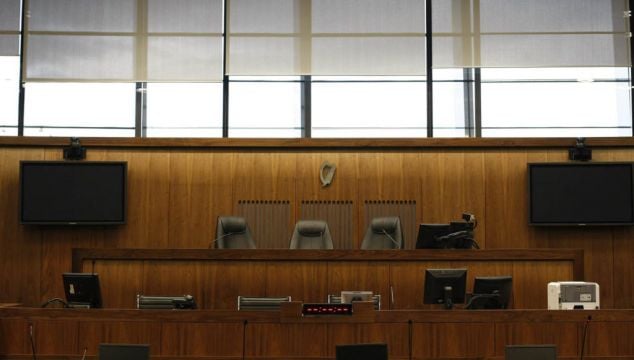A man who was jailed for the rape of a woman described as his “best friend” has had his conviction quashed by the Court of Appeal over the trial judge's comments to the jury on the right to silence during interviews with gardaí.
The man (28), who cannot be named in order to protect the identity of his victim, was charged with a single count of rape relating to the alleged incident on November 7th, 2018, to which he had pleaded not guilty.
He was convicted by a jury in November 2021 and was sentenced to seven years, with the final three and a half years suspended by Ms Justice Deirdre Murphy in May 2022.
He subsequently appealed the conviction.
The Central Criminal Court was told at his sentencing hearing that the man continued to maintain he was unaware that the woman did not consent to having sex with him before they stopped.
At the Court of Appeal on Monday, Court President Mr Justice George Birmingham said the appellant had argued that he was unfairly criticised for not saying he held a belief that the complainant was consenting to intercourse prior to giving evidence at trial.
The issue surfaced at the trial when counsel for the State re-examined the complainant and asked her whether she had ever heard of the matters that were put to her in cross-examination before, to which she said she had not.
The trial judge sanctioned a line of questioning of the appellant as to why he had not previously advanced the explanation, later given at trial, that he believed consent had been given.
Though the prosecution did not act specifically on that line of questioning, the defence maintained that a series of general questions achieved the same result by asking the appellant when was the first time he told anyone he believed consent had been given.
Charge to the jury
The appellant then raised issues around the judge’s charge to the jury, in which she referred to the origins of the right to silence and how some accused answer certain questions but do not answer others during interviews with gardaí.
The appellant submitted that this was a “thinly-veiled invitation to the jury to consider whether they wished to disbelieve the appellant’s claimed belief that the complainant was consenting to sexual intercourse”, Mr Justice Birmingham said.
The judge’s observations then triggered an unsuccessful application by the defence to have the jury discharged.
However, the judge did re-charge the jury, though counsel for the defence said any re-charge “could only make matters worse and described it as the equivalent of sticking a ‘band-aid over a very seriously gushing wound’”, Mr Justice Birmingham said.
Mr Justice Birmingham addedthe appellant submitted that the combined effects of the issues around the belief of consent “was such as to render the trial unfair”.
“Judges are entitled to comment on the evidence. That entitlement is not an unlimited one,” Mr Justice Birmingham said.
“In general, a judge should not comment on the fact that an accused person, when arrested and detained, relied on his right to silence and declined to answer some or all questions being put to him,” the judge added.
Remarks
Mr Justice Birmingham said in the trial judge's ruling on the matter, Ms Justice Murphy contended the remarks being criticised were “general remarks”.
Mr Justice Birmingham said that, at the trial, defence counsel said it was a “direction he had never heard given to a jury”.
“No member of this court has come across such a charge,” Mr Justice Birmingham noted.
He said that this was “not at all determinative of the matter” as there could be many cases where remarks of this nature would not be controversial. However, he said the court could not lose sight of the context in which the remarks were made.
“This was a case where, apparently on legal advice, the appellant did not answer questions relating to the night in question,” Mr Justice Birmingham said.
The judge added the appellant’s position was “a somewhat unusual one, accepting that the complainant had not consented to intercourse but asserting no crime had been committed because the appellant believed that the complainant was consenting”.
Mr Justice Birmingham said the trial judge’s comments “must have led the jurors to the view that the appellant was given an opportunity at an early stage to put forward his defence – he did not take the opportunity - and perhaps ask why it was not taken if it was a genuine belief which had been ever present”.
“It seems to us that the remarks did, in the circumstances of this case, impact on the appellant’s right to silence,” Mr Justice Birmingham said.
He added that the stage of the trial at which the remarks were made meant the defence was denied an opportunity to respond and that the judge’s remarks were not capable of being dealt with by way of any re-charge.
In allowing the appeal and quashing the conviction, Mr Justice Birmingham said the “force and clarity" of the re-charge was “not, in fact, capable of retrieving the situation”.
“In those circumstances, we feel obliged to quash the conviction,” Mr Justice Birmingham said, before he adjourned the matter to February 16th to hear submissions on the matter of any re-trial.
If you have been affected by any of the issues raised in this article, you can call the national 24-hour Rape Crisis Helpline at 1800-77 8888, access text service and webchat options at drcc.ie/services/helpline/ or visit Rape Crisis Help.







